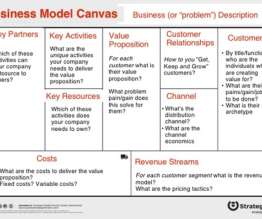Corporate Acquisitions of Startups: Why Do They Fail?
Steve Blank
APRIL 23, 2014
More often than not the results of these acquisitions are disappointing. buy out an entire company for its revenue and profits. The goal is to get a corporate investment or an outright acquisition of the startup. The common mistake acquirers make is treating all acquisitions the same.







































Let's personalize your content